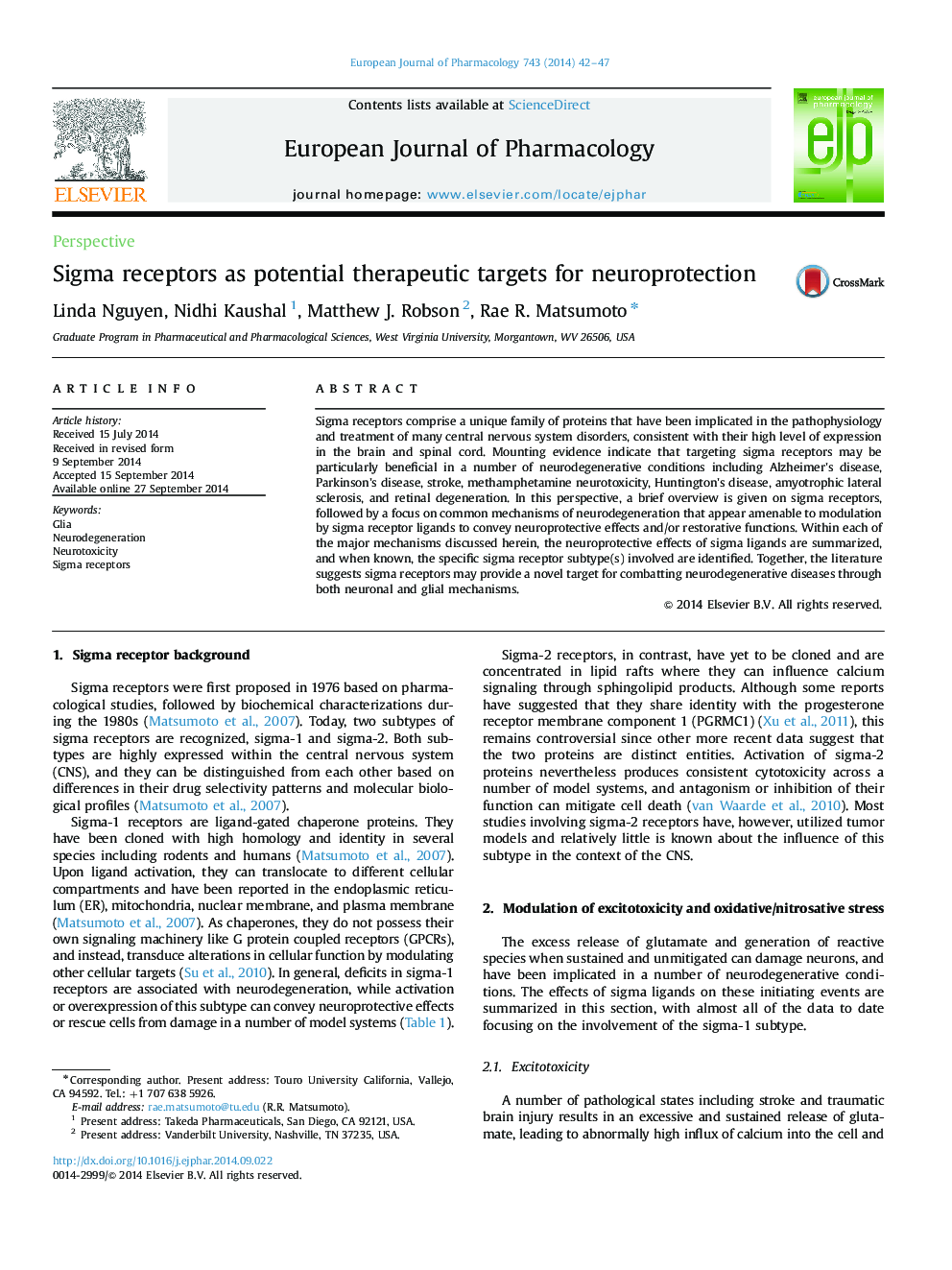| Article ID | Journal | Published Year | Pages | File Type |
|---|---|---|---|---|
| 5827575 | European Journal of Pharmacology | 2014 | 6 Pages |
Abstract
Sigma receptors comprise a unique family of proteins that have been implicated in the pathophysiology and treatment of many central nervous system disorders, consistent with their high level of expression in the brain and spinal cord. Mounting evidence indicate that targeting sigma receptors may be particularly beneficial in a number of neurodegenerative conditions including Alzheimer׳s disease, Parkinson׳s disease, stroke, methamphetamine neurotoxicity, Huntington׳s disease, amyotrophic lateral sclerosis, and retinal degeneration. In this perspective, a brief overview is given on sigma receptors, followed by a focus on common mechanisms of neurodegeneration that appear amenable to modulation by sigma receptor ligands to convey neuroprotective effects and/or restorative functions. Within each of the major mechanisms discussed herein, the neuroprotective effects of sigma ligands are summarized, and when known, the specific sigma receptor subtype(s) involved are identified. Together, the literature suggests sigma receptors may provide a novel target for combatting neurodegenerative diseases through both neuronal and glial mechanisms.
Related Topics
Life Sciences
Neuroscience
Cellular and Molecular Neuroscience
Authors
Linda Nguyen, Nidhi Kaushal, Matthew J. Robson, Rae R. Matsumoto,
